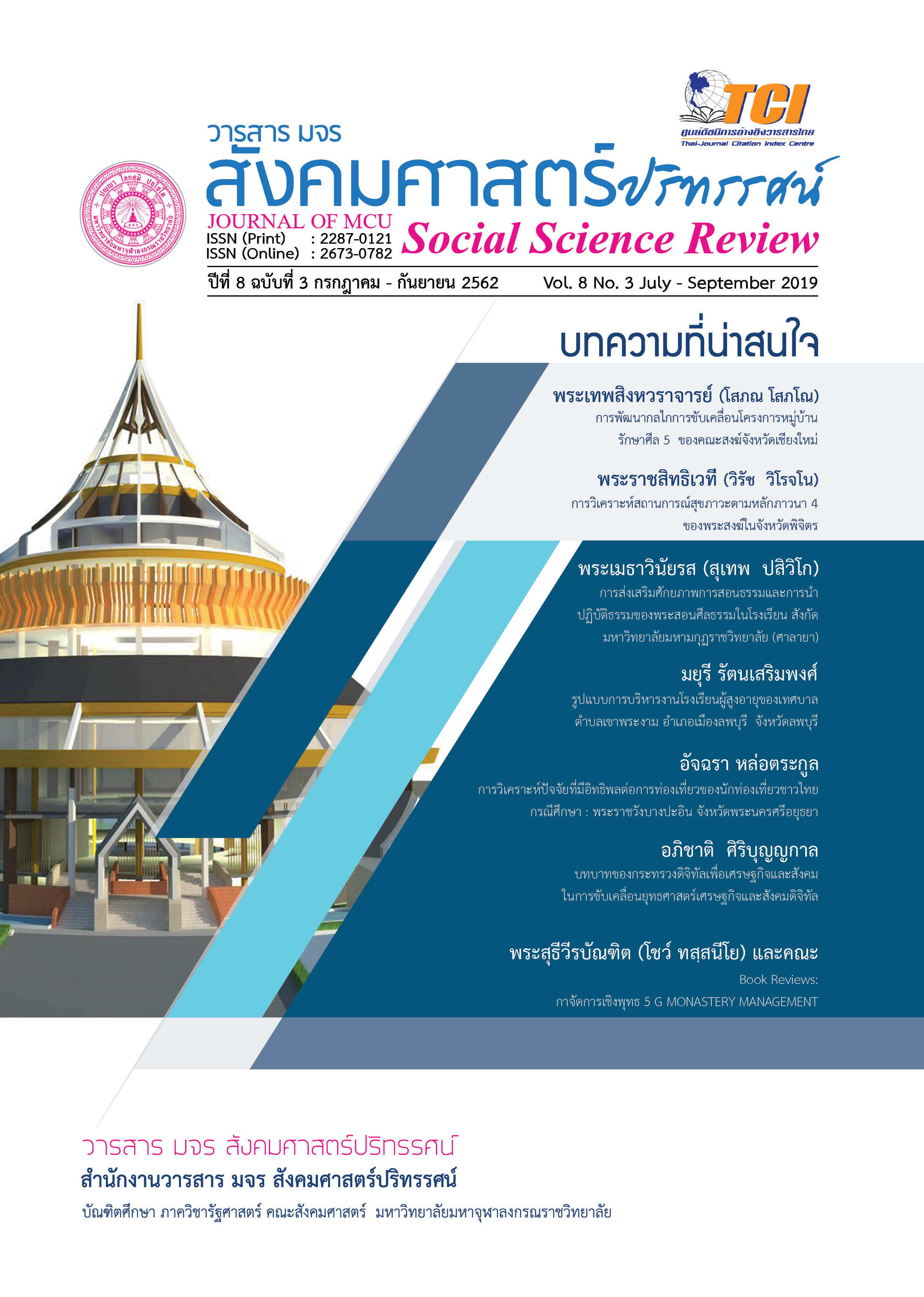ROLE OF MINISTRY OF DIGITAL ECONOMY AND SOCIETY TO DRIVING STRATEGIC OF DIGITAL ECONOMY AND SOCIETY.
Keywords:
Role of Ministry, Driving Strategic, Digital Economy and societyAbstract
Objectives of this research were to, 1) study the role of The Ministry of Digital Economy and society to driving the digital economy. 2) Study the factors that affected the digital economy strategy, according to the problems and barricades in the implementation of The Ministry of Digital Economy and society for the Economy and Society. And 3) study how driving the Ministry of Digital Economy and society's strategy for economic and social development.
Research was qualitative research. It is a method to study new knowledge from the perspective of the key informant and the researcher studied the document. In-depth interview the data analysis also analyzes the qualitative data by providing a database that can be easily used for analysis by creating a data set, such as the data of interviews, group discussions, etc. are examined. For the confidence of the information received.
- Human resources were required to develop human resources in digital technology. The public sector needs to systematically reorganize its digital literacy workforce in the form of integration, preparing people for work with other government and private sectors. Associated In particular, the integration between ministries in sharing information.
- Telecommunication infrastructure was to start with the reform of the country's telecommunications infrastructure. Whether it is data access and high-speed Internet access. Whether it be existing networks to achieve maximum efficiency, for reduced gap in digital access and usability between urban and distance populations. The government must cooperated with the private sector to ensure the widespread access to digital technology. For example, to extend free Wi-Fi all people will be accessible and utilized. The access to the service must be able to do anywhere, anytime, with quality. By the speed that supports the needs of all people.
- Law and the rule of law required the modification of laws and regulations that facilitate the development of digital technology, because there was no such adjustment. Transitioning to a digital government will be difficult. In addition, adjustments to the laws and regulations for digital government could continue, digital technology laws and regulations be amended, but it also had to look at other laws and regulations related to the development of information technology in the future, which must be reviewed in order to promote the development of the country simultaneously.
- Readiness of the government was to improve the form and the way the government works. Integrate cross-sector collaboration. In particular, government agencies need to integrate holistic interoperability. Instead of the fragmented work that has been done in the past, to provide mechanisms for preparing the interoperability between public sector information and the public sector for facilitating information and promoting systems. It could work in a balanced and effective way. By working together or linking important information between each other.
Downloads
Published
How to Cite
Issue
Section
License
In order to conform the copyright law, all article authors must sign the consignment agreement to transfer the copyright to the Journal including the finally revised original articles. Besides, the article authors must declare that the articles will be printed in only the Journal of MCU Journal of Social Sciences. If there are pictures, tables or contents that were printed before, the article authors must receive permission from the authors in writing and show the evidence to the editor before the article is printed. If it does not conform to the set criteria, the editor will remove the article from the Journal without any exceptions.





